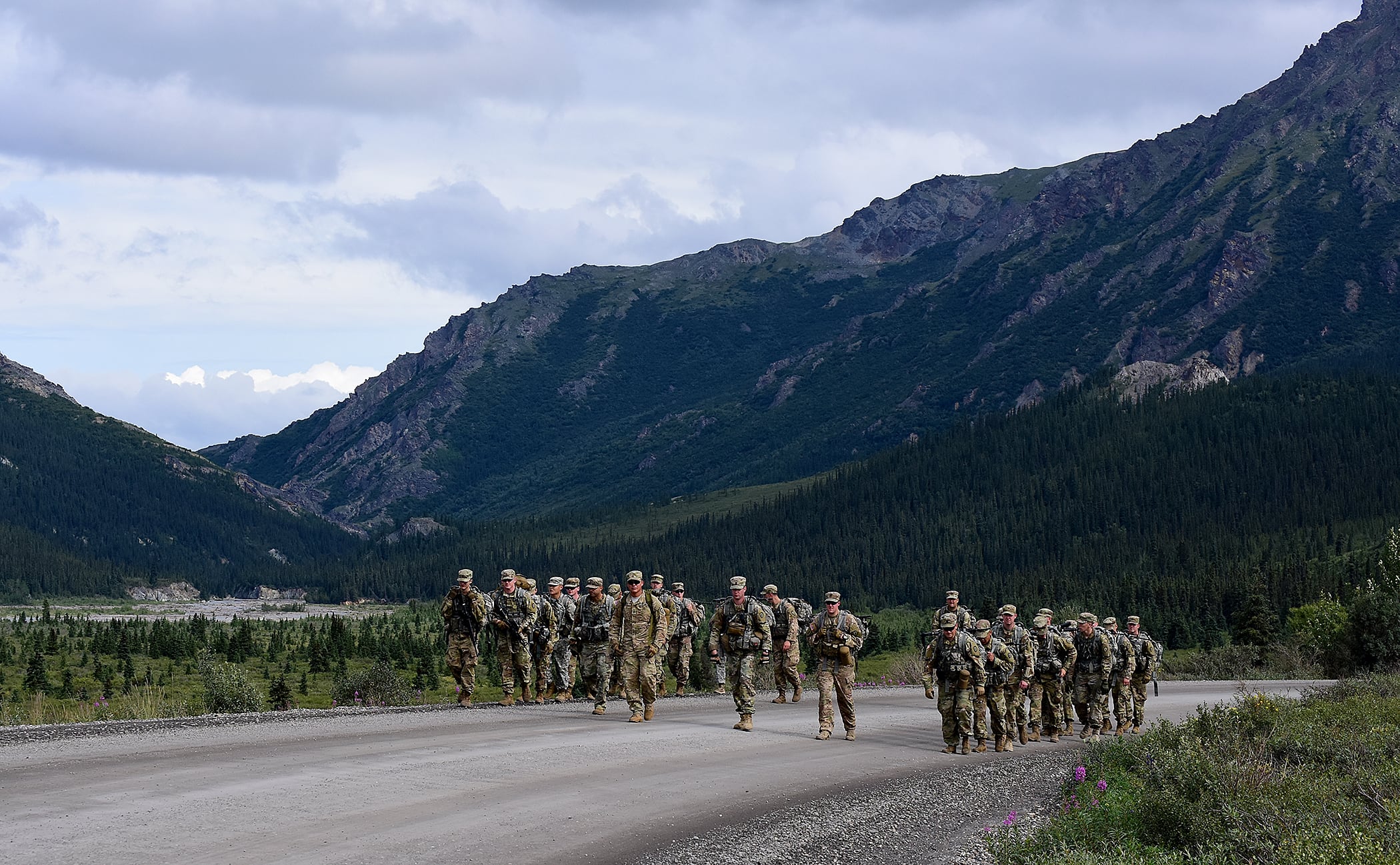Three 10th Mountain Division soldiers at Fort Drum, New York, are suspected to have died by suicide within roughly 48 hours of each other in mid-September.
One of the troops was among the last to return home during the U.S. withdrawal from Afghanistan, according to a statement from the 10th Mountain Division. Unit leaders warned against painting suicide cases with a broad brush and said they are investigating each case individually.
The deaths of Pfc. Tyler Thomas, 21, Spc. Sika Tapueluelu, 26, and Staff Sgt. Angel Green, 24, are believed to be unrelated.
“Immediately when we have a situation when a Soldier is suspected of taking their own life, we want to know the trigger,” Maj. Gen, Milford H. Beagle, Jr., 10th Mountain commander, said in an emailed statement. “What are the underlying challenges that contributed to the decision to harm themselves? We want to know what didn’t we catch? What are we missing? This is what our immediate focus is.”
Thomas was a signal support system specialist from Cedar Hill, Texas; Tapueluelu was a cannon crewmember from Tukwila, Washington; and Green was an infantryman from Barstow, California, who deployed to Afghanistan twice.
Green had only returned on Sept. 6 from his latest deployment. Officials don’t believe his deployment was a primary reason for his death.

Local media coverage referred to the cluster of incidents as a “wakeup call” for leadership. But the senior enlisted soldier at 10th Mountain said these deaths are part of a bigger, well-known problem within the military.
“We do not consider this to be a wakeup call,” Command Sgt. Maj. Mario O. Terenas said in an email to Army Times. “We have been aware for years that the loss of a battle buddy is absolutely soul crushing.”
Terenas stressed that looking at each incident separately is key.
Throughout September, Ft. Drum has highlighted suicide-prevention resources available to servicemembers. On Facebook, the Fort Drum Family Resource Center shared a video urging soldiers to seek help and communicate facing mental health challenges.
“I know this is Suicide Prevention Month,” Terenas said in a video published Sept. 18, “but honestly we need to be thinking about it every minute, every hour, every day, every week, every month, every year because it’s not just about awareness. This is about prevention.”
RELATED

Terenas told Army Times that the importance of talking about thoughts of self-harm hit home for him not only because of the issue’s prevalence within the military community, but because he’s experienced these thoughts himself.
“I believe everyone has thought about it at one time or more in their lives,” Terenas said. “At one point in my life, I was there.”
Terenas said he overcame these thoughts because he had a squad leader and peers who he was able to talk with when he was struggling. That’s the type of connection he hopes to see from leaders within the Army to prevent future losses.
Though active-duty and veteran deaths by suicide saw a slight slowdown earlier this year, the numbers remain significant. And not all components of the military saw declines.
Suicide deaths in the active duty Army have been increasing. There were 45 suicide deaths among active duty soldiers in the first quarter of 2021. That’s compared to 37 during the same timeframe in the previous year, and it continues an upward trend seen over the past four years, according to the most recent Pentagon data.
A study published by Boston University and Brown University in June found that active-duty deaths by suicide vastly outnumbered service member deaths during the wars in Iraq and Afghanistan.
As the investigation continues, Terenas stressed that leadership wants soldiers to feel comfortable being open and forthcoming when they face these kinds of challenges.
“Give us a chance to connect you to all the resources we have available,” he said. “Whatever challenges may come up whatever failure point you may face, help is available.”
Veterans experiencing a mental health emergency can contact the Veteran Crisis Line at 1-800-273-8255 and select option 1 for a VA staffer. Veterans, troops or their family members can also text 838255 or visit VeteransCrisisLine.net for assistance.





